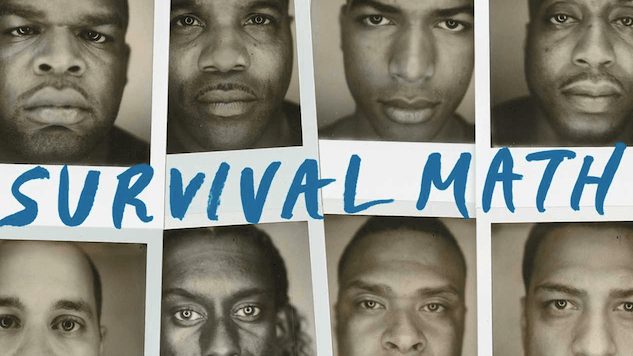Survival Math‘s Mitchell S. Jackson Is the Great American Writer We Need

Survival Math: Notes on an All-American Family is one of the best essay collections of 2019.
Mitchell S. Jackson writes mediations on race, class, culture and ipseity informed by his upbringing in Portland. His childhood in Northeast neighborhood, his days dealing drugs, his friends’ and family’s triumphs are all interlaced in empathetic scenes of a criminally neglected slice of American life. When he writes about creating a composite father figure or the long shadow cast by the pose of a pimp, when he serves as witness to his mother’s marriage to crack, Jackson puts people and poetry to what is seen by many through the crime blotter.
 Survival Math is crucial reading vis-à-vis race and class and culture and identity, and people more informed than me on those issues will write about them. But I’m here to write about Jackson—one of the best writers working right now.
Survival Math is crucial reading vis-à-vis race and class and culture and identity, and people more informed than me on those issues will write about them. But I’m here to write about Jackson—one of the best writers working right now.
In fact, writer does the man an injustice; he’s a herald, an emissary of a place born of America’s institutionalized inequity. This inequity is an original sin destined to be our very doom if not treated with empathy and acknowledgement, and like any talented herald, Jackson is impossible to ignore. In his considerations is the strength necessary to pull those Leviathan crimes up from the depths and to step on Behemoth’s neck.
He opens the city’s Northeast neighborhood like the Ark of the Covenant and melts away the nation’s Portland, hipster eyes rolling like fixies down the face, whatever flesh left flash-fried with flannel squares, Voodoo Donuts turned to ash on the palate. He jams into your chest the electric antlers of the White Stag, equal parts araneidan come-on-in and Get Out.
Jackson builds the Church of Whiteness so that it’s evil architecture can be seen. He is the son of what began as a white ethno-state, which he handles by crashing Vanilla Eden. His introductory letter to the first black person to set foot on what would become Oregon portends the inequity and pain to come—from Markus’ death in a fight with natives of Tillamook Bay to Portland’s first gang killing to the present day’s bleached exhortation to KEEP PORTLAND WEIRD.
Some writers can render existence itself by transmuting our reality, lacing memories with magic and the real world with the fantastical. In telling us of his Portland, Jackson shuttles the reader to someplace exquisite and horrifying, sublime and crucial. He incorporates the many languages he’s had to speak in his life and career, creating a Konami code capable of unlocking the best of human feeling: pathos and righteous anger and soaring love.
A herald from a place constructed by America’s inequity and racist venom, Jackson delivers prose which promises exsanguination and ego death. His is the kind of voice—the timbre, the words, the feeling of friendship as he brings you into a half-hug and lets you feel his heart beat—which no one can ignore.
That’s a herald’s job.
B. David Zarley is a freelance journalist, essayist and book/art critic based in Chicago. A former book critic for The Myrtle Beach Sun News, he is a contributing reporter to A Beautiful Perspective and has been seen in The Atlantic, Hazlitt, Jezebel, Chicago, Sports Illustrated, VICE Sports, Creators, Sports on Earth and New American Paintings, among numerous other publications. You can find him on Twitter or at his website.



































